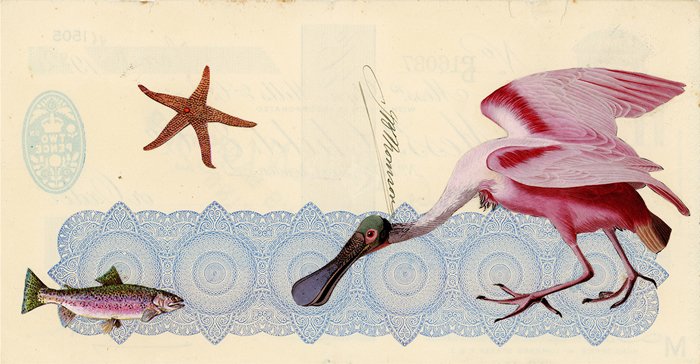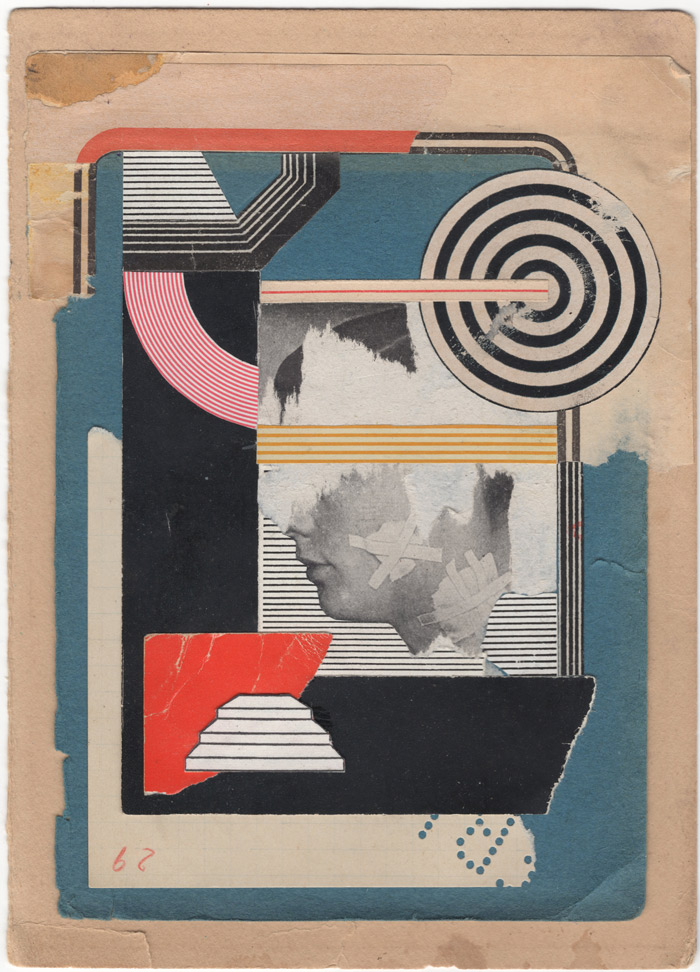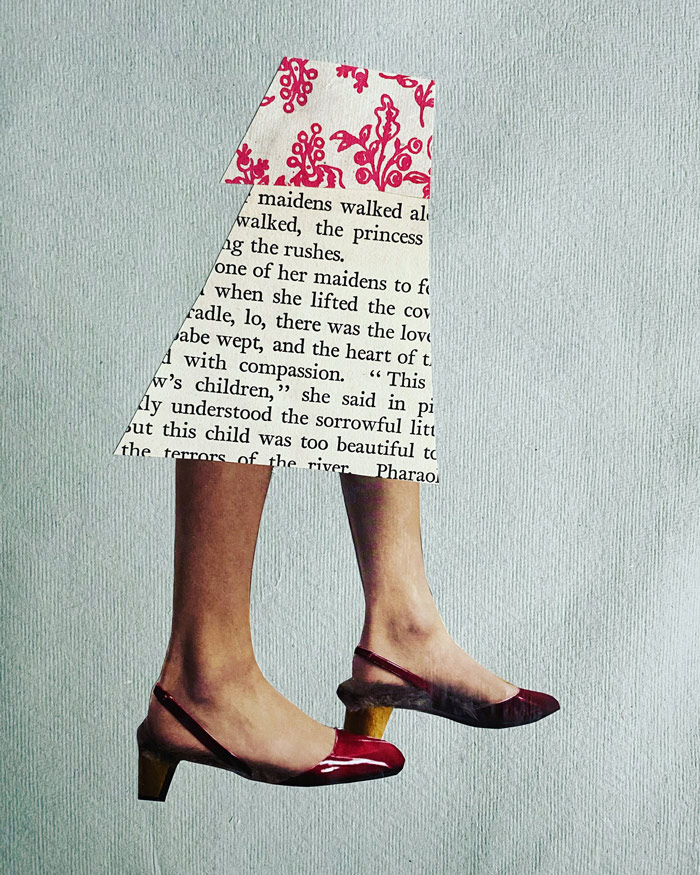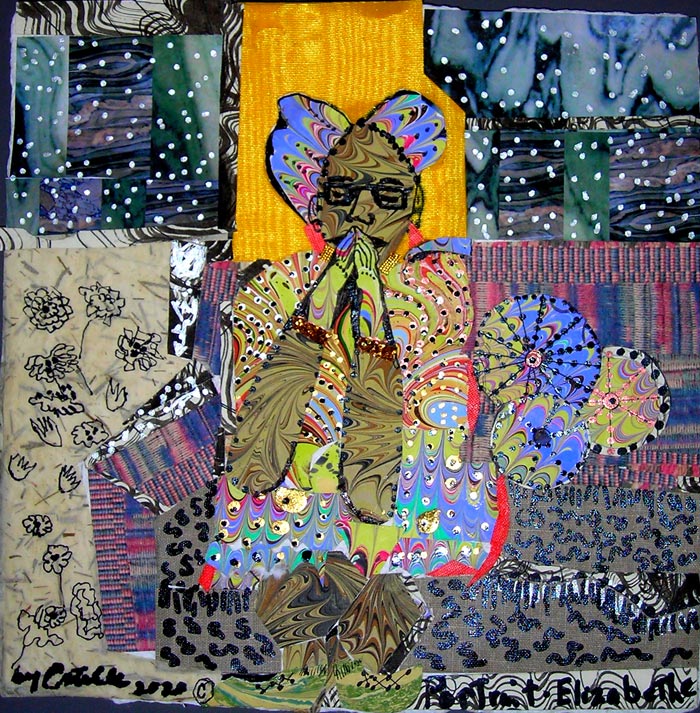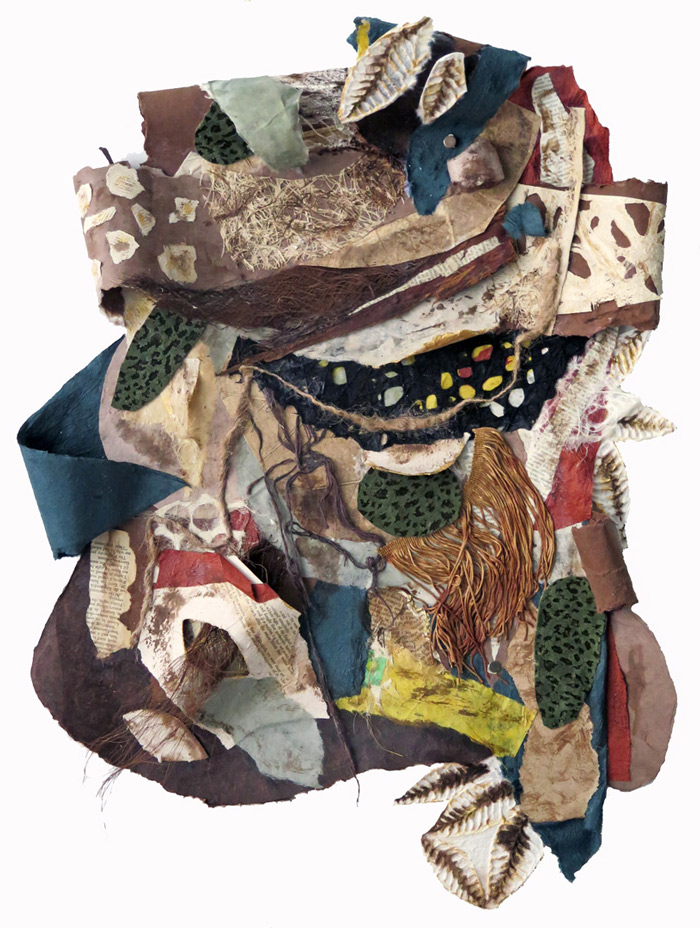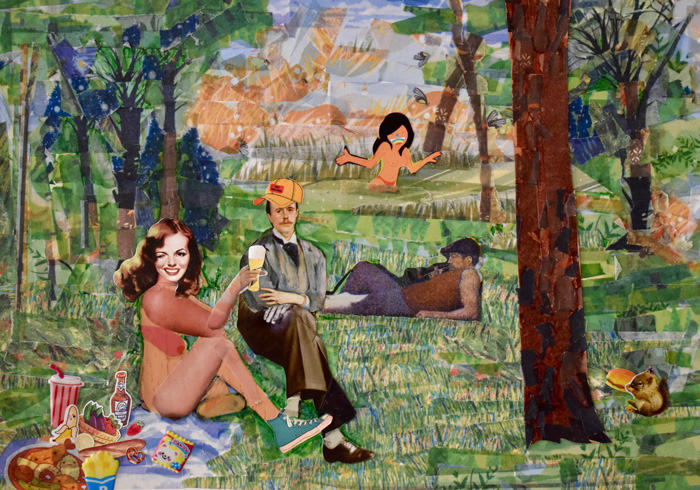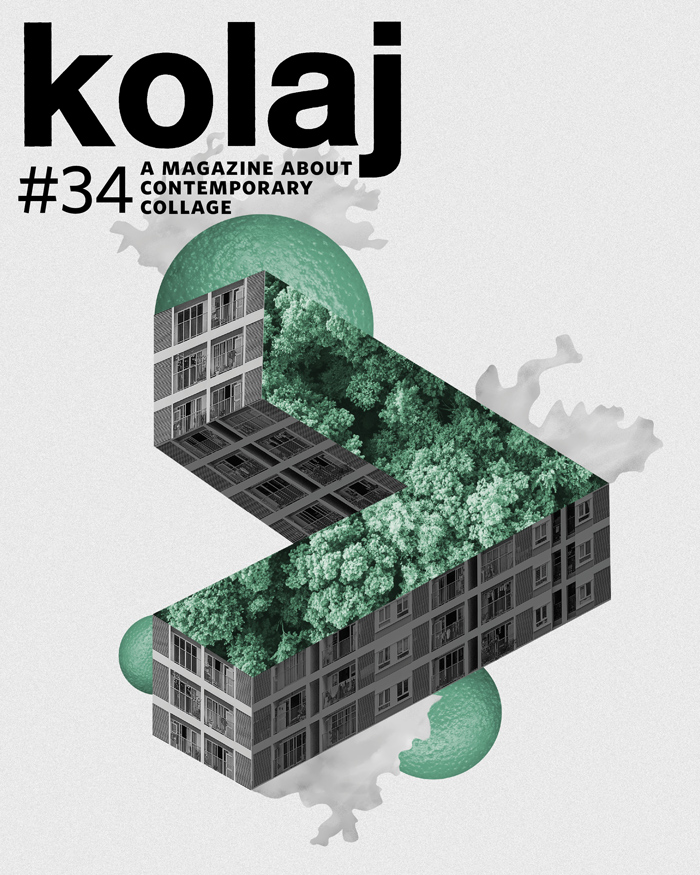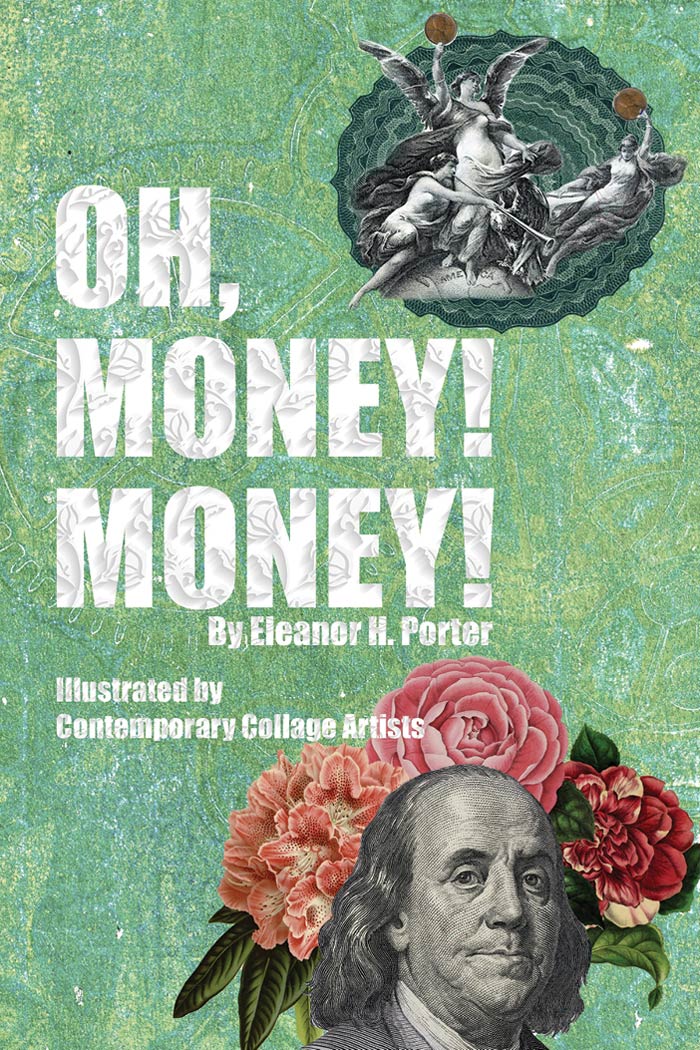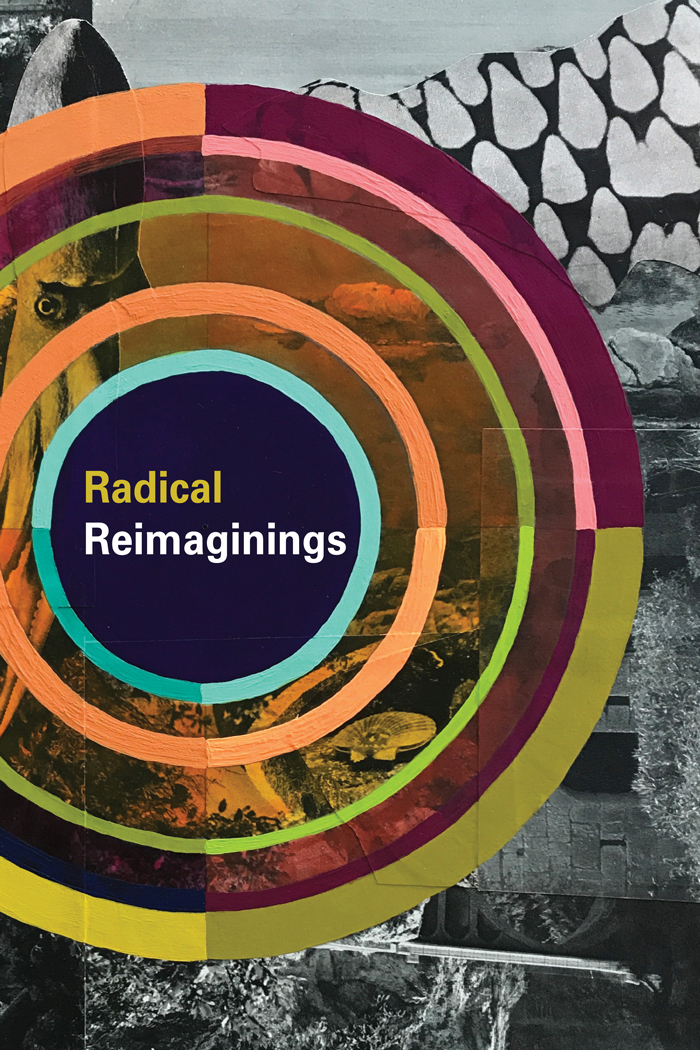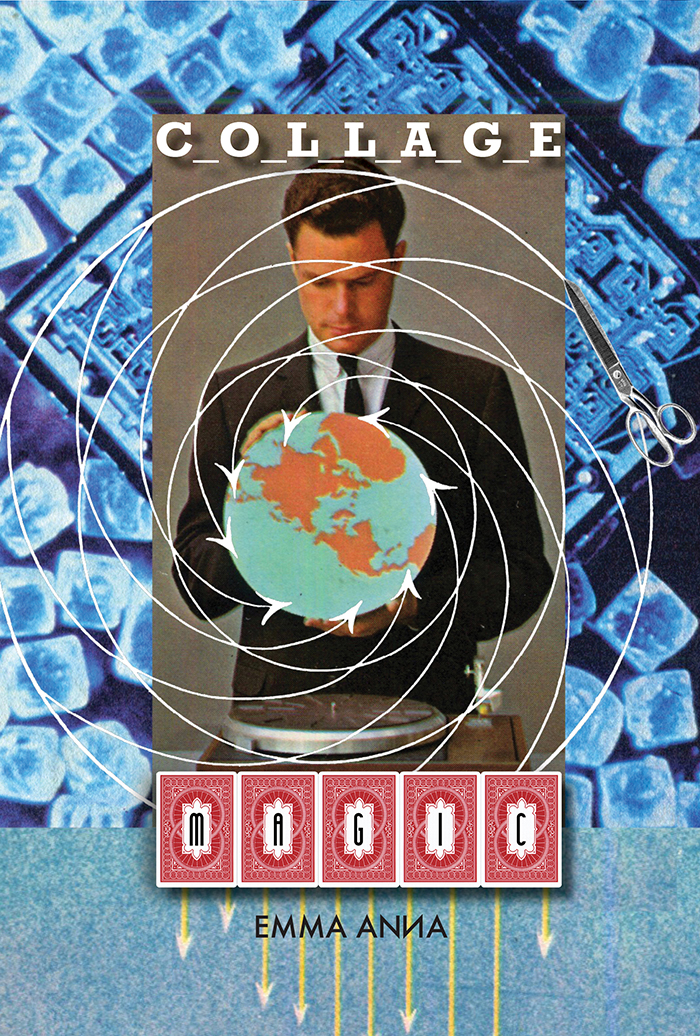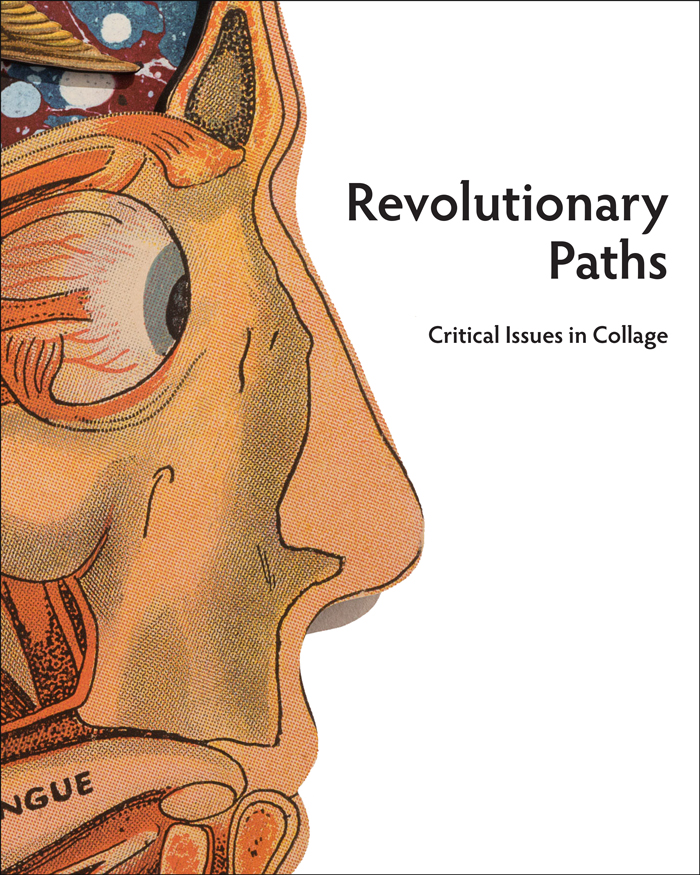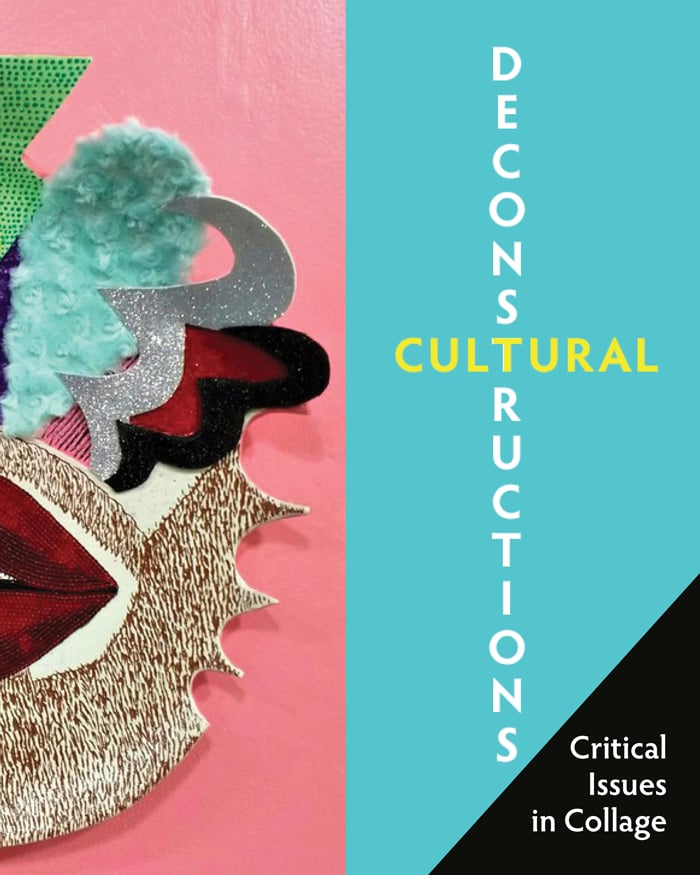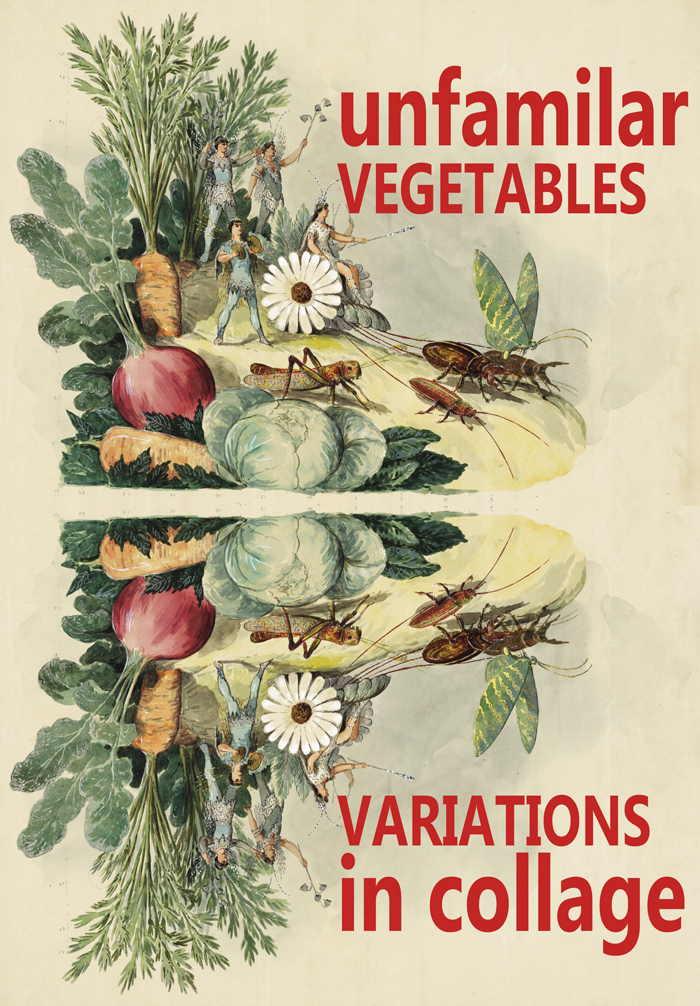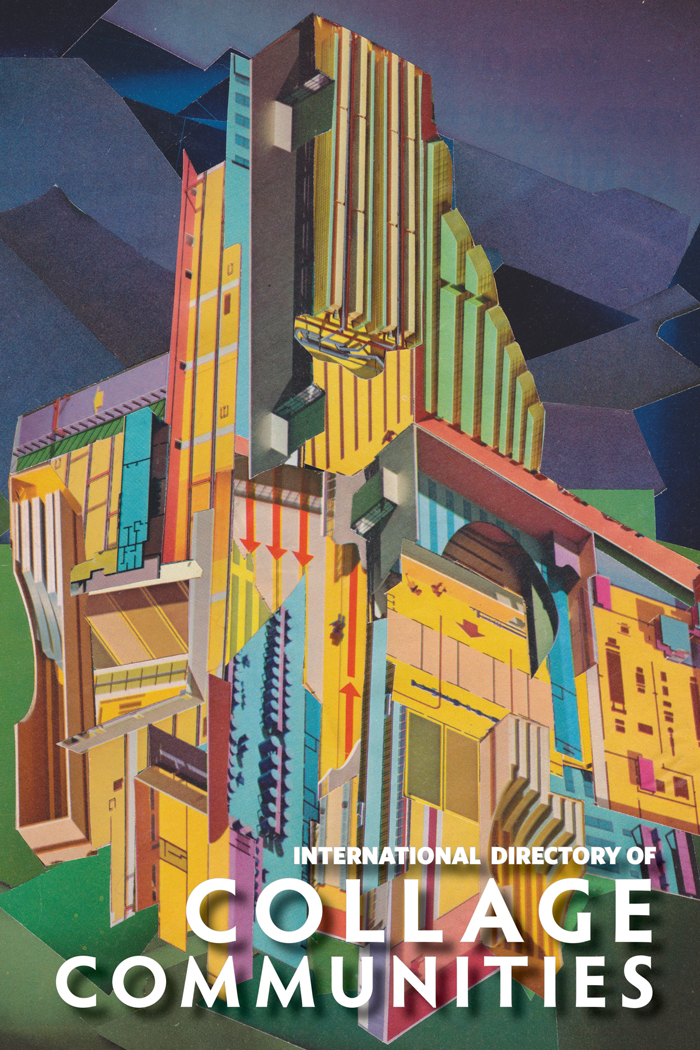![]()
MAGAZINE | INSTITUTE | CURRENT ISSUE | ARTIST DIRECTORY | SHOP
KOLAJ LIVE ONLINE | KOLAJ LIVE KNOXVILLE
FROM THE ARTIST DIRECTORY
Ambiguous Narratives
Upperville, Virginia, USA. Alexandra N Sherman’s art explores the landscape of the mind through watercolors painted from her subconscious, installations with found or created objects, and collage using vintage and antique ephemera. She seeks to give the viewer an intimate experience through works that explore the uncertainty and mystery inherent in life, ourselves, the environment and the need for conservation. Her work depicts the spaces in-between, the seen and unseen through ambiguous narrative that invites the viewer to complete the story. MORE
FROM THE ARTIST DIRECTORY
Visualize Potential
Baltimore, Maryland, USA. Drawing inspiration from the realms of spirituality and psychedelia, David Van aims to create minimal and balanced surrealism where socio-political commentary can exist within an esoteric platform. Van hunts and collects vintage raw materials that include magazines, books, various found artifacts that strike his fancy, and anything else he can visualize potential in. MORE
FROM THE ARTIST DIRECTORY
Simplicity & Power
London, United Kingdom. In Emily Marbach's collage, bits of paintings and prints are intermingled with found materials which enhances the texture of her work. Collage is a struggle for Marbach. She's been drawn to it for years and dedicated exclusively to it for at least the past five. But it wasn’t until her daily practice of it during COVID that she has been able to relax into the chaos it creates in her studio and find a route to its simplicity and power. MORE
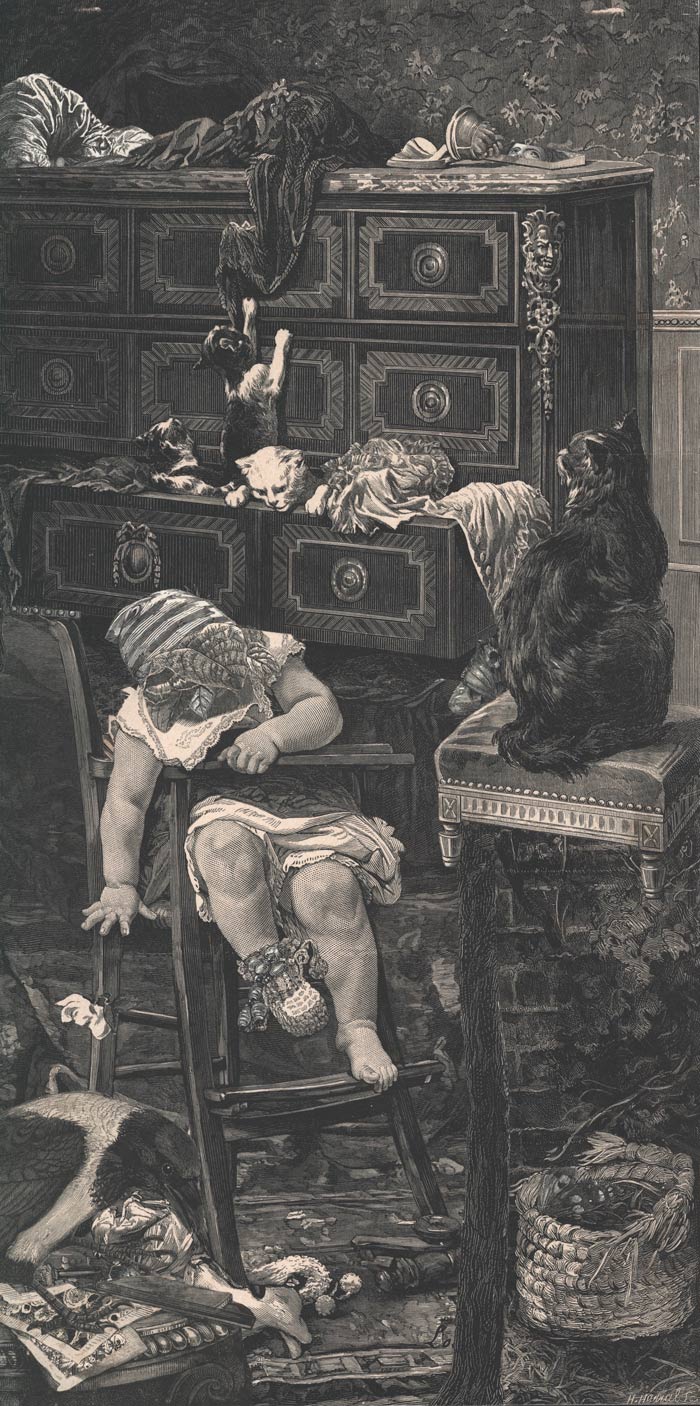
FROM THE ARTIST DIRECTORY
Puzzle Pieces
Pacific Grove, California, USA. Catie O’Leary uses original engraved illustrations from antique books as inspiration as well as material. The meticulously cut-out parts become puzzle pieces in her selection process creating a chain of associations. The resulting collages become their own visual story. MORE
FROM THE ARTIST DIRECTORY
Walking Space
Magdalena, New Mexico, USA. Estelle L Roberge’s recent paintings emerge from a series of walks through local and distant wilderness or other “outside” sites throughout the seasons. After collecting elements, both tangible and intangible, on her walkabouts, Roberge crushed dried flowers, mixed ash into paint, and collaged raw material onto surfaces, laying in thick amounts of paint. Thus, her walking space becomes embedded, embodied, open, juxtaposed between colored footprints, textures and colors and shapes of human suffering. MORE
FROM THE ARTIST DIRECTORY
Humble Elegance
Bronx, New York, USA. JoAnne Lobotsky is passionate about texture and layers of surface and sometimes employs unconventional materials, such as faux fur or rust. Imperfection, abjectness, and roughness coinciding with beauty and a kind of humble elegance are Lobotsky’s main goals. Lobotsky feels like the manner of construction and materials is “a rebellion against our class system and economic entitlement and strives to become accepted on its own terms within its own limitations.” MORE
FROM THE ARTIST DIRECTORY
Authority, Power, & Audience
Brooklyn, New York, USA. Lauren Monaco’s work explores ideas of art history, pop culture, authority, power, and audience. Her most recent works are reinterpretations of iconic “fine art” pieces by male artists throughout art history using the medium of stickers and washi tape. She explores the intersection of pop-culture and fine art using humor and a critical lens. MORE
Current Issue
Our goal with every issue is that Kolaj Magazine is essential reading for anyone interested in the role of contemporary collage in art, culture, and society. We not only hope you enjoy the articles and images in Kolaj 34, we hope it leads you to asking great questions.
PRINT MAGAZINE
Kolaj 34
From Rockwall, Texas to Belarus to Dublin, Ireland, Kolaj 34 offers an international view of collage. In this issue we look at how the medium is being used to critique fashion advertising, build community, and investigate Black, Victorian spirituality. Writers wrestle with ideas about illusionary spaces, the psychology of the creative process, and concepts that expand our understanding of collage.
Each issue of Kolaj Magazine shows how collage artists are making their way through the world. International in scope, we explore all aspects of collage and its impact on society and culture. MORE
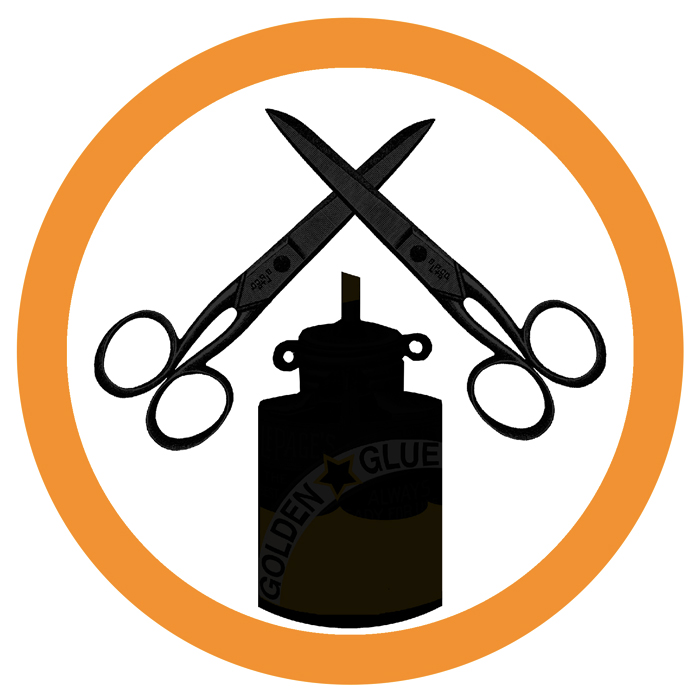
Kolaj 34 is automatically sent to Silver Scissors & Golden Glue Members of Kolaj Institute. These special members of Kolaj Institute support residencies, fellowships, publications, and traveling programs while receiving a piece of the collage community to their mailbox each month. LEARN MORE
Recent Publications
NEW BOOK
Oh, Money! Money!
by Eleanor H. Porter
Kolaj Institute is pleased to announce the publication of Oh, Money! Money!by Eleanor H. Porter and illustrated by a collective of collage artists. In Porter’s 1918 novel, a Chicago multi-millionaire struggles to decide to whom he should leave his money. The book is a time capsule of early 20th century American life with a strong focus on the lives of women and observations about material culture and communities before the rampant consumerism of the 1920s and the Great Depression. To illustrate the book, Kolaj Institute organized a residency that brought together ten artists who worked collaboratively to make sixty-three collages that interpret Porter’s novel for a 21st century audience. MORE
BOOK
Radical Reimaginings
The curators of the 96-page book invited artists who use collage in their practice to put forward a work of art that offers a visual narrative that speaks to the unprecedented change unfolding in 2020. An essay by Ric Kasini Kadour reflects upon collage's unique ability to imagine new realities. Forty artists from nine countries and multiple Indigenous peoples—Salish-Kootenai/Métis-Cree/Sho-Ban, Tlingit/Nisga’a, Oglala/Lakota, and Seneca Nation—offer a variety of perspectives. The voices of Black, Latinx, Native, and white Americans mingle with those from Chile, Colombia, Mexico, Peru, Argentina, Canada, France, and Germany. Artwork is accompanied by a statement in which the artists describe how they want to reimagine the world. MORE
BOOK
Collage Magic
by Emma Anna
Part autobiography, part fantasy, Emma Anna’s vision of The New Old World (aka The NOW) fuses vintage ephemera with modern imaging technologies. Emma shapes this strange world by using the pen tool from Adobe Photoshop as her magic wand, in the process declaring herself to be a “collage magician”. Part artist book, part document of art making, Collage Magic, from La Casa Verde Editions, is Emma Anna’s journey through magic and art. MORE
BOOK
Revolutionary Paths
When the collage is presented in exhibition, it is often done so without the critical framework granted other mediums. In "Revolutionary Paths: Critical Issues in Collage", exhibition curator Ric Kasini Kadour presents examples of collage that represent various aspects and takes on the medium. Each work in the exhibition represents the potential for deeper inquiry and further curatorial exploration of the medium. MORE
BOOK
Cultural Deconstructions
Collage is unique as a medium in that it uses as its material artifacts from the world itself. To harvest those fragments, the artist must first deconstruct culture; they must select, cut, and remove the elements they do not wish to use and then reconstruct work that tells a new story. In "Cultural Deconstructions: Critical Issues in Collage", exhibition curator Ric Kasini Kadour presents examples of collage artists who are deconstructing identity as a way to critique culture. MORE
FROM ARTSHOP
Kolaj Year Eight Collectors Pack
NOW AVAILABLE! The Kolaj Magazine Year Eight Collectors Pack includes Issues 29, 30, 31, and 32. Our goal with every issue is that Kolaj Magazine is essential reading for anyone interested in the role of contemporary collage in art, culture, and society. MORE
BOOK
The Money $how: Cash, Labor, Capitalism & Collage
The Money $how juxtaposes contemporary artwork against fragments of history and literature as a way of showing how collage can help us deconstruct culture and understand the world differently. Artists collage dollar bills into flowers and mine material remnants to tell stories about home economics. MORE
SPECIAL EDITION
World Collage Day 2021
In honour of World Collage Day, May 8, 2021, Kolaj Magazine is releasing a special edition of the magazine. The Special Edition is full of Cut-Out Pages and stories from inspiring collage artists. MORE
Note: The World Collage Day Special Edition is not included in a regular Kolaj Magazine subscription.
COLLAGE BOOK
Unfamiliar Vegetables: Variations in Collage
Unfamiliar Vegetables is a collection of collage where each of the fifty artists interpreted, in their own way, Carlotta Bonnecaze’s 1892 Carnival float design Familiar Vegetables. Project organizer Christopher Kurts observed, “Unfamiliar Vegetables is an experiment in controlled chaos….tiny variations within each artist’s creative sphere accumulate until the outcomes are as unique as the people creating them.” MORE
COLLAGE COMMUNITIES
The International Directory of Collage Communities
The 104-page book is a survey of collage networks, guilds, communities, and projects as well as online efforts and groups focused on collage research. For each community, the directory presents their key activities, mission, how to join, and a bit of their history. Copious images illustrate the book. MORE
Our goal with every issue is that Kolaj Magazine is essential reading for anyone interested in the role of contemporary collage in art, culture, and society. Each issue of Kolaj Magazine is dedicated to reviewing and surveying contemporary collage with an international perspective. We are interested in collage as a medium, a genre, a community, and a 21st century art movement.
